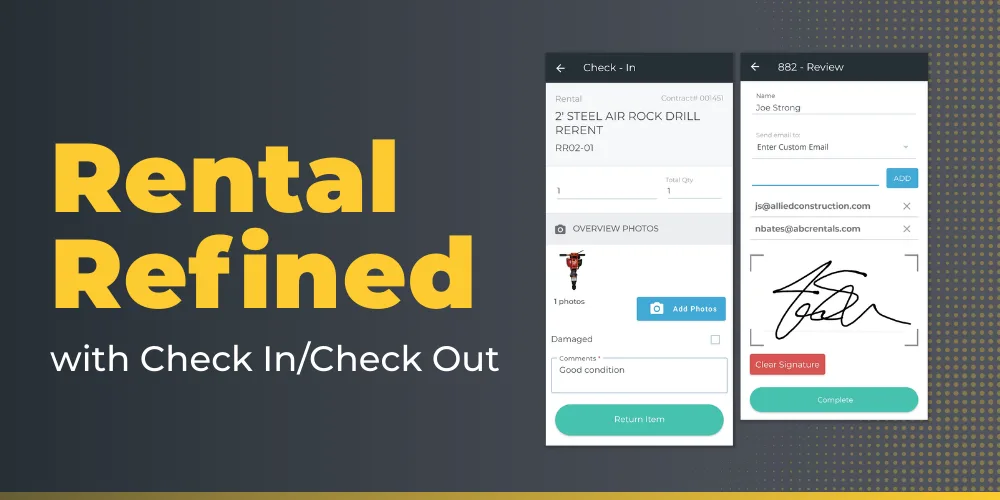Equipment Service Management Software (ESMS) can greatly enhance business operations by ensuring all machinery and equipment run smoothly. Imagine having a digital assistant who monitors your equipment, schedules regular maintenance, and quickly addresses any issues. That’s exactly what ESMS does for businesses.
With ESMS, companies can prevent unexpected breakdowns and reduce downtime. It helps create a maintenance schedule, tracks work orders, and manages spare parts inventory. It means your team can focus on more important tasks instead of worrying about equipment failures.
ESMS also improves communication and coordination among team members, ensuring that everyone knows what needs to be done and when. By keeping everything running smoothly, ESMS helps businesses save time, reduce costs, and increase productivity. In this blog, we’ll explore how ESMS can transform your business operations and keep your equipment in top-notch condition.
What Is Equipment Service Management Software?
ESMS is a powerful tool that helps businesses keep their machines and equipment running smoothly. In real-time, ESMS allows businesses to monitor their machines, schedule regular maintenance, and quickly address any issues.
With ESMS, companies can create a maintenance schedule to ensure that each piece of equipment is checked and serviced regularly. This proactive approach prevents unexpected breakdowns, saving time and money. When a machine does need repair, the software helps manage the process efficiently by creating and tracking work orders. This way, everyone knows what needs to be fixed and when.
ESMS also tracks spare parts and tools. It monitors inventory levels so businesses always have the right parts on hand without overstocking. If a part is running low, the software can automatically reorder it.
Overall, ESMS makes equipment management easier and more efficient. It helps businesses avoid costly downtime, extend the lifespan of their equipment, and use their resources wisely. In short, ESMS ensures that all machines are working at their best, keeping operations smooth and productive.
How Does Equipment Service Management Software Help Your Business?
Let us explore the ways equipment service management software works alongside other equipment business management solutions to streamline your business.
Inventory Management System Offers Enhanced Operations Visibility
An Inventory Management System (IMS) gives businesses a clear view of their stock levels, making operations run smoothly. With IMS, companies can easily track what parts and supplies they have on hand. It helps prevent situations where they run out of critical items or have too much of something they don’t need.
The system automatically updates inventory records as items are used or received, so there’s always an accurate count. If stock gets low, IMS can even reorder parts automatically, ensuring the necessary items are always available.
By using an IMS, businesses can reduce waste and save money. They know exactly what they have and what they need, which helps them make better decisions about purchasing and using resources. In short, an IMS provides enhanced visibility and control over inventory, leading to more efficient and cost-effective operations.
Build Lasting Customer Relationships with Industry-Specific CRMs
Building lasting customer relationships is easier with industry-specific Customer Relationship Management (CRM) systems. These CRMs are designed to meet the unique needs of different industries, making it simple to manage customer interactions and improve service.
With an industry-specific CRM, businesses can keep detailed records of customer preferences, past interactions, and purchase history. With an integrated equipment service management software solution, service and customer data can be leveraged to deliver personalized service, making customers feel valued and understood.
The CRM system also helps businesses stay in touch with customers by sending reminders for follow-ups, birthdays, or special offers. It can even automate routine tasks, freeing up time for more meaningful interactions.
Using an industry-specific CRM can help companies build stronger, more loyal relationships with their customers. They can respond quickly to customer needs, offer tailored solutions, and create a positive experience that keeps customers returning. In short, these CRMs help businesses connect with their customers on a deeper level, ensuring long-term satisfaction and loyalty.
Enhance Operational Efficiency with Automation Functionalities
You can greatly enhance operational efficiency with automation functionalities. Automation tools help businesses complete repetitive tasks quickly and accurately, freeing time for more important work.
Automation also helps monitor equipment performance. It can send alerts when something needs attention so you can fix issues before they become big problems. This keeps operations running smoothly and reduces downtime.
By using automation, businesses can streamline their processes, reduce costs, and improve productivity. Employees can focus on more strategic tasks, making the operation more efficient and effective. In short, automation functionalities simplify work, save time, and help businesses operate at their best.
Integrating automation functionalities into your business operations offers:
- Faster deployment of equipment, assets, and technicians to carry out our rental orders and maintenance activities for optimum client satisfaction.
- Real-time remote data access and elimination of manual processes for improved workforce productivity.
- Streamline on-site quoting and billing for established e-commerce efficiency.
- Overall, enhanced efficiency in managing the fleet, scheduling maintenance, work order management, and other critical tasks.
Leverage a Cloud-Based Equipment ERP
Leveraging a cloud-based ERP system allows you the benefits of an on-premises solution with added cost efficiency. This system helps businesses manage their equipment, inventory, and operations online, reducing the need for expensive hardware and IT support.
A cloud-based ERP allows easy access to real-time data from anywhere, enabling better decision-making and faster response times. It also scales with your business, so you only pay for what you need.
By using a cloud-based equipment ERP, companies save money on maintenance and upgrades while improving operational efficiency. In short, it offers a smart, cost-effective solution for managing equipment service, parts inventory, and more.
Implementing an ERP system can unlock benefits like,
- Enhanced security and data availability for better business continuity and performance.
- Increased cost-efficiency at all levels.
- Easy access to critical data across teams at all times.
Make Data-Driven Decisions
Make smart decisions with advanced financial reporting and analytics. These tools help businesses understand their financial health by providing detailed reports and insights.
Advanced analytics lets you track service income, expenses, and profitability in real-time. It makes it easier to spot trends, identify issues, and make informed decisions quickly.
Financial reporting tools help create clear, accurate reports for stakeholders, ensuring everyone stays informed. These advanced tools allow businesses to plan better, manage resources more effectively, and achieve their financial goals. In short, they turn complex financial data into actionable insights for smarter decision-making.
Financial reporting can be utilized to leverage the following benefits:
- Identifying opportunities for ROI optimization and cost-saving
- Managing inventory for optimum efficiency, client satisfaction, and profitability.
- Ability to make data-driven business decisions based on equipment utilization time and other critical considerations.
Streamline Your Business Operations with Texada’s Equipment Service Management Software
Streamline your equipment business with Texada’s equipment service management software suite. Contact our representatives to learn about our customized solutions to meet your business requirements and make the most of your business operations.
Did you know?
Texada has a partnership with BMTS Intranet Inc., which has provided service solutions for a variety of a Caterpillar dealers since 2006. Learn more here
Key Takeaways
- ESMS ensures all machinery and equipment runs smoothly by monitoring them in real-time, scheduling regular maintenance, and quickly addressing issues. It reduces downtime and prevents unexpected breakdowns.
- An Inventory Management System (IMS) provides a clear view of stock levels, automatically updates inventory records, and reorders parts when necessary, leading to efficient and cost-effective operations.
- Industry-specific CRM systems help businesses maintain detailed customer interactions and preferences records, automate routine tasks, and deliver personalized service, fostering strong and loyal customer relationships.
- Automation functionalities streamline repetitive tasks and monitor equipment performance. At the same time, cloud-based ERP systems reduce IT costs, provide real-time data access, and scale with business needs, enhancing overall operational efficiency.




